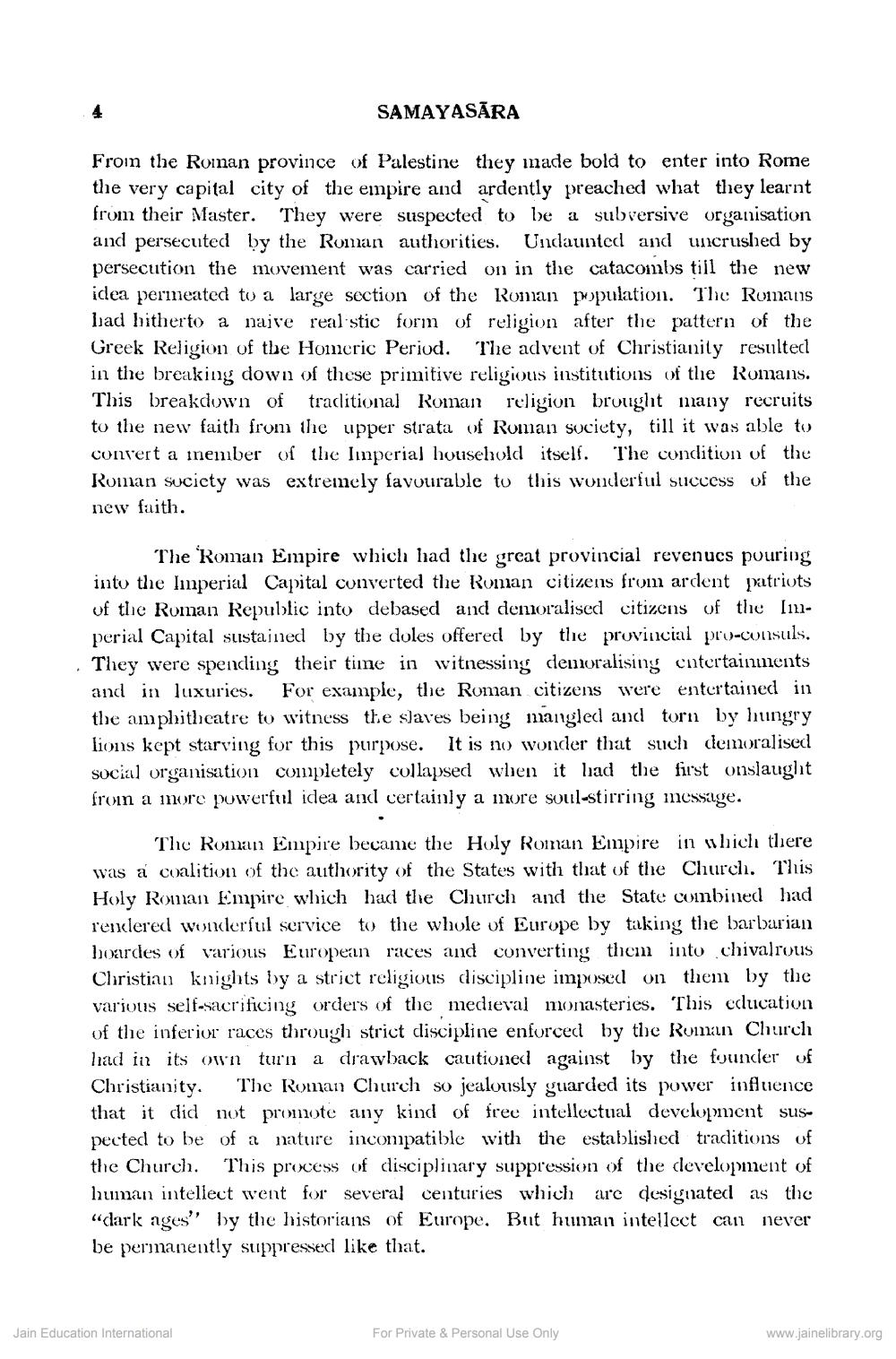________________
SAMAYASĀRA
Froin the Roman province of Palestine they made bold to enter into Rome the very capital city of the empire and ardently preached what they learnt from their Master. They were suspected to be a subversive organisation and persecuted by the Roman authorities. Undaunted and uncrushed by persecution the movement was carried on in the catacombs till the new idea perineated to a large section of the Roman population. The Romans liad hitherto a naive real stic form of religion after the pattern of the Greek Religion of the Homeric Period. The advent of Christianity resultech in the breaking down of these primitive religious institutions of the Romans. This breakdown of traditional Roman religion brought many recruits to the new faith from the upper strata of Roman society, till it was able to convert a inember of the Imperial household itself. The condition of the Roman suciety was extremely favourable to this wonderful success of the new faith.
The Roman Empire which had the great provincial revenues pouring into the Imperial Capital converted the Roman citizens from ardent patriots of the Roman Republic into debased and demoralised citizens of the line perial Capital sustained by the doles offered by the provincial pro-consuls. They were spending their time in witnessing demoralising entertainments and in luxuries. For example, the Roman citizens were entertained in the amphitheatre to witness the slaves being mangled and torn by hungry lions kept starving for this purpose. It is no wonder that such demoralised social organisation completely collapsed when it had the first onslaught froin a more powerful idea and certainly a more soul-stirring message.
The Roman Empire became the Holy Roman Empire in which there was a coalition of the authority of the States with that of the Church. This Holy Roman Empire which had the Church and the State combined had rendered wonderful service to the whole of Europe by taking the barbarian hoardes of various European races and converting them into chivalrous Christian knights by a strict religious discipline imposed on them by the various self-sacrificing orders of the medieval monasteries. This cclucation of the inferior races through strict discipline enforced by the Roman Church Tad in its own turn a drawback cautioned against by the founder of Christianity. The Roman Church so jealously guarded its power influence that it did not promote any kind of free intellectual development suspected to be of a nature incompatible with the established traditions of the Church. This process of disciplinary suppression of the development of human intellect went for several centuries which are designated as the "dark ages' by the historians of Europe. But human intellcct can never be permanently suppressed like that.
Jain Education International
For Private & Personal Use Only
www.jainelibrary.org




